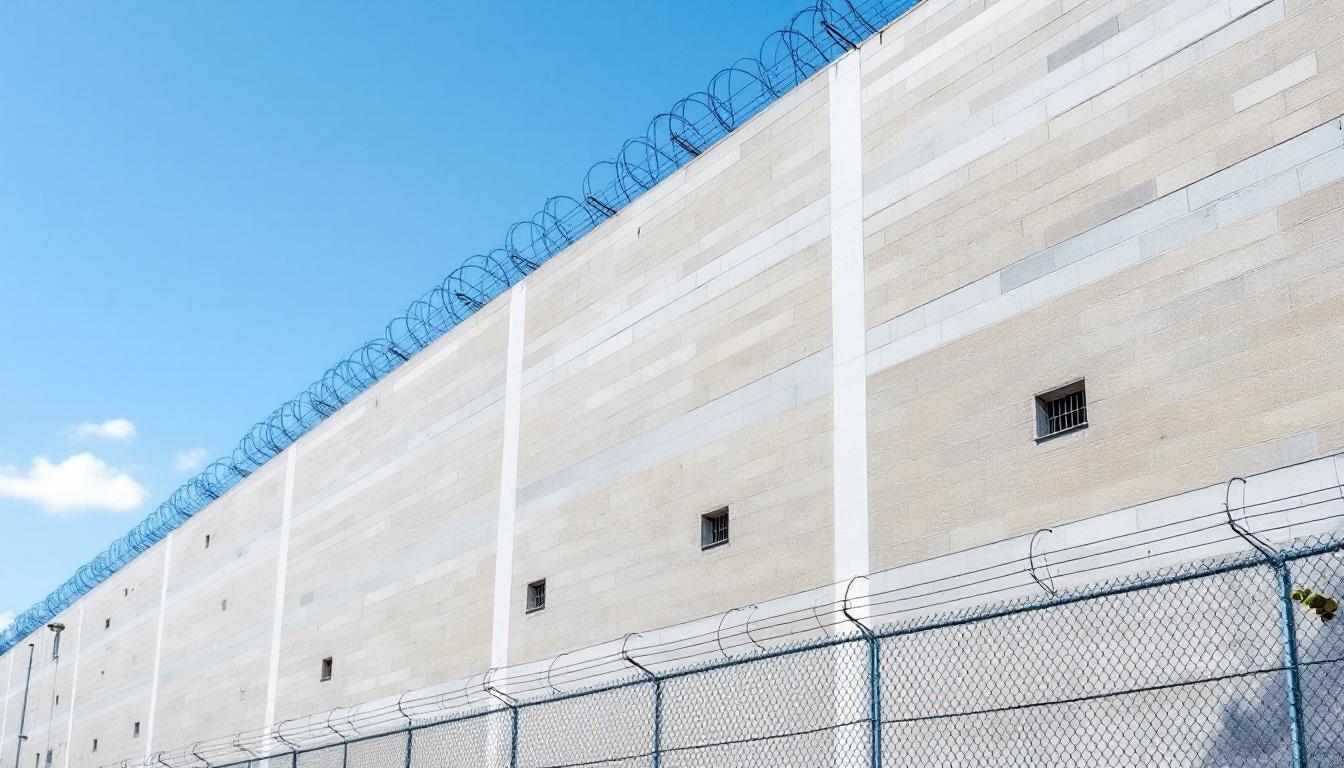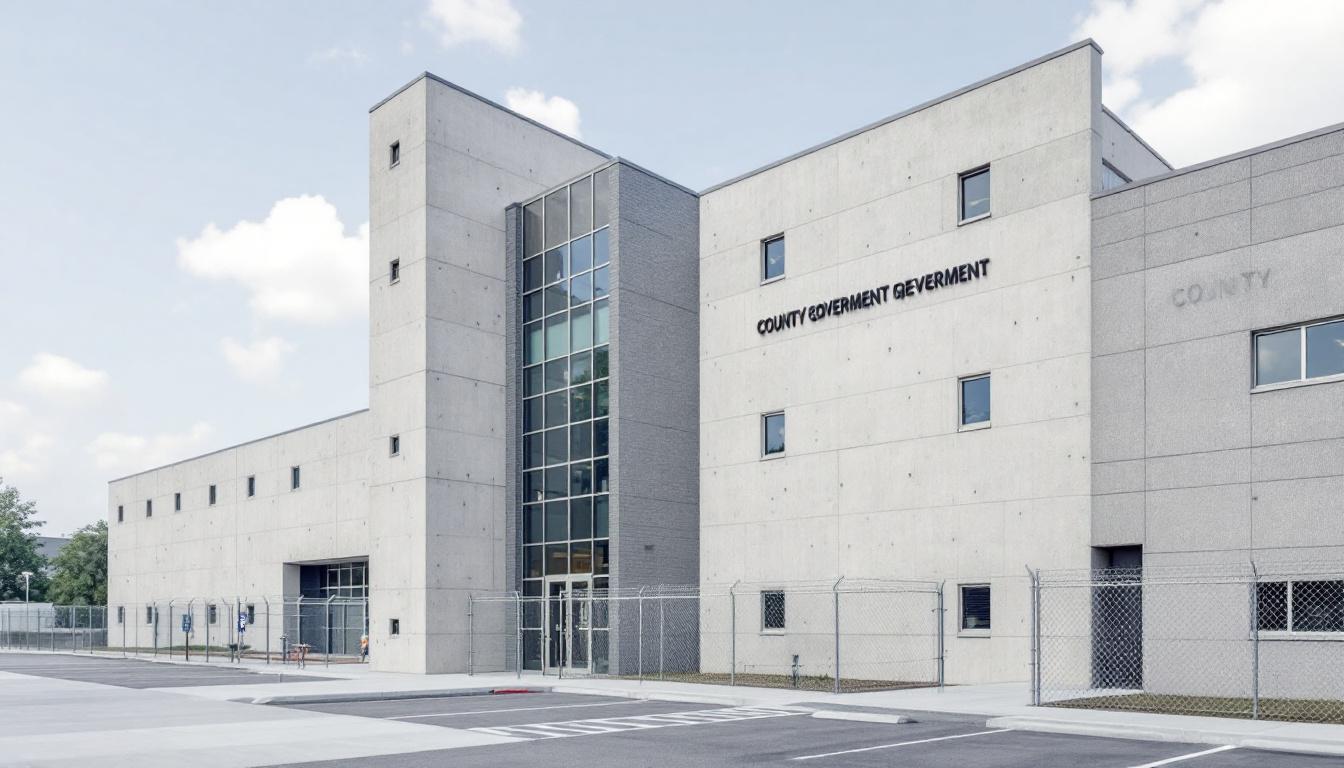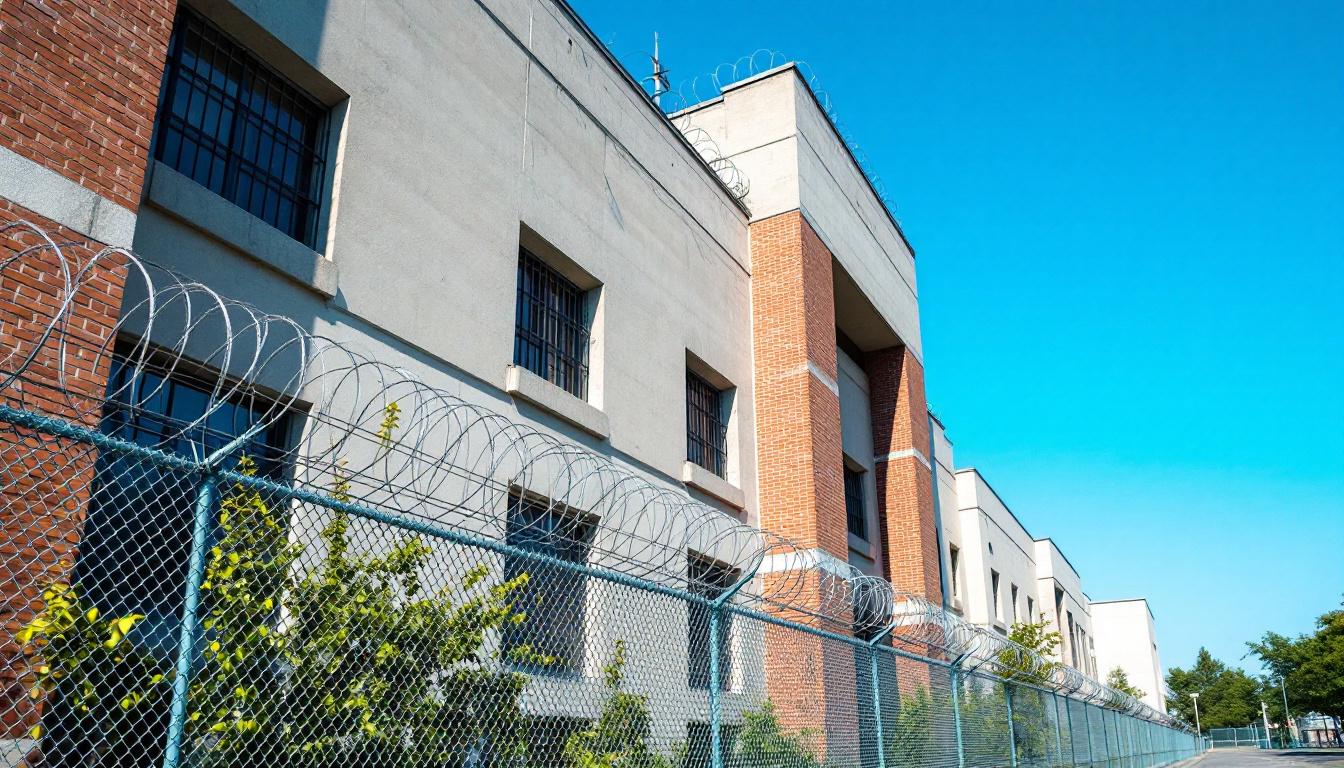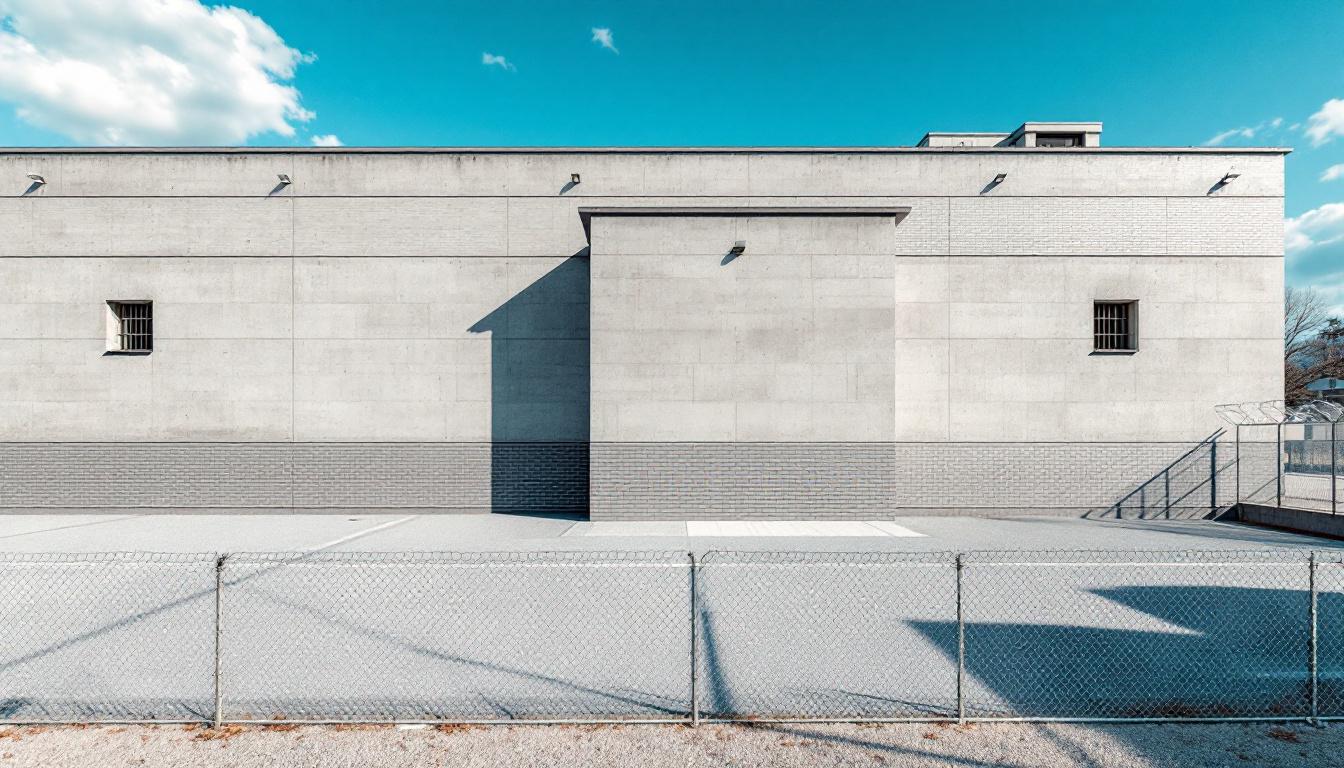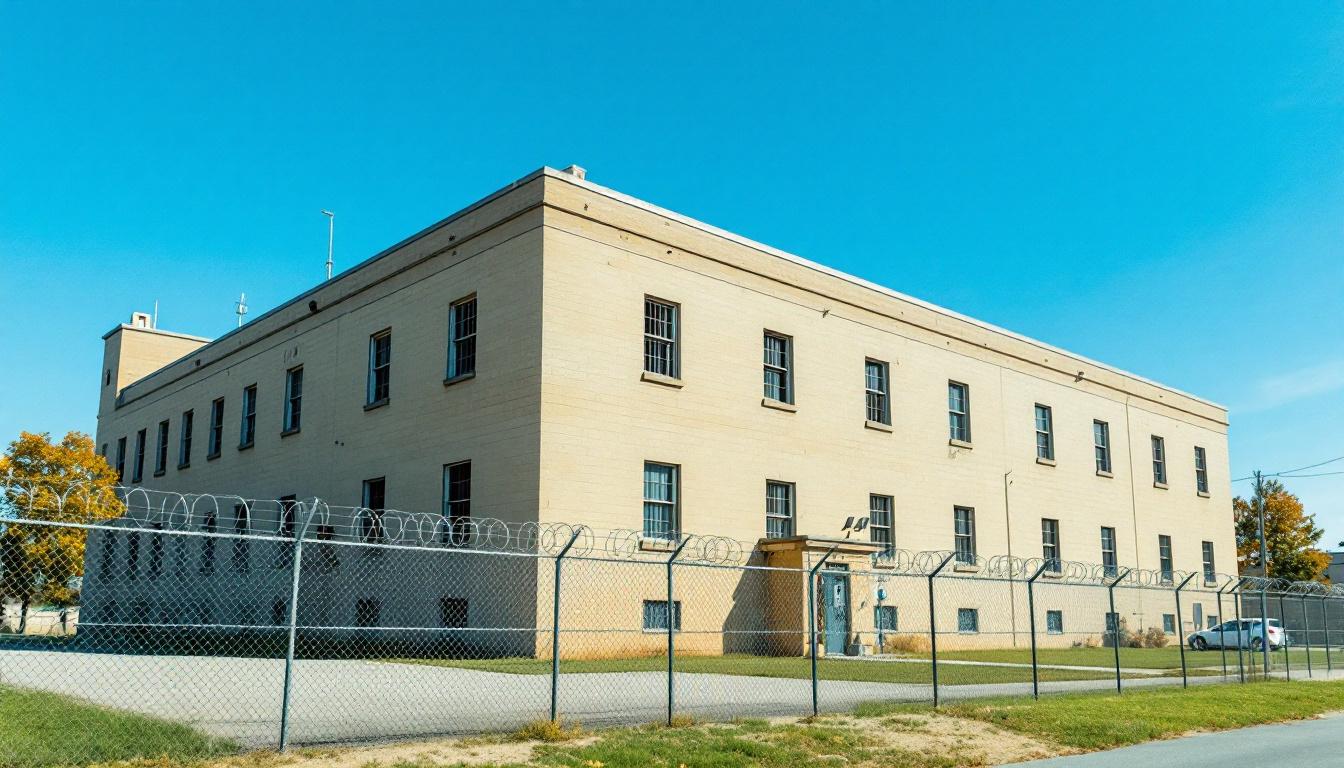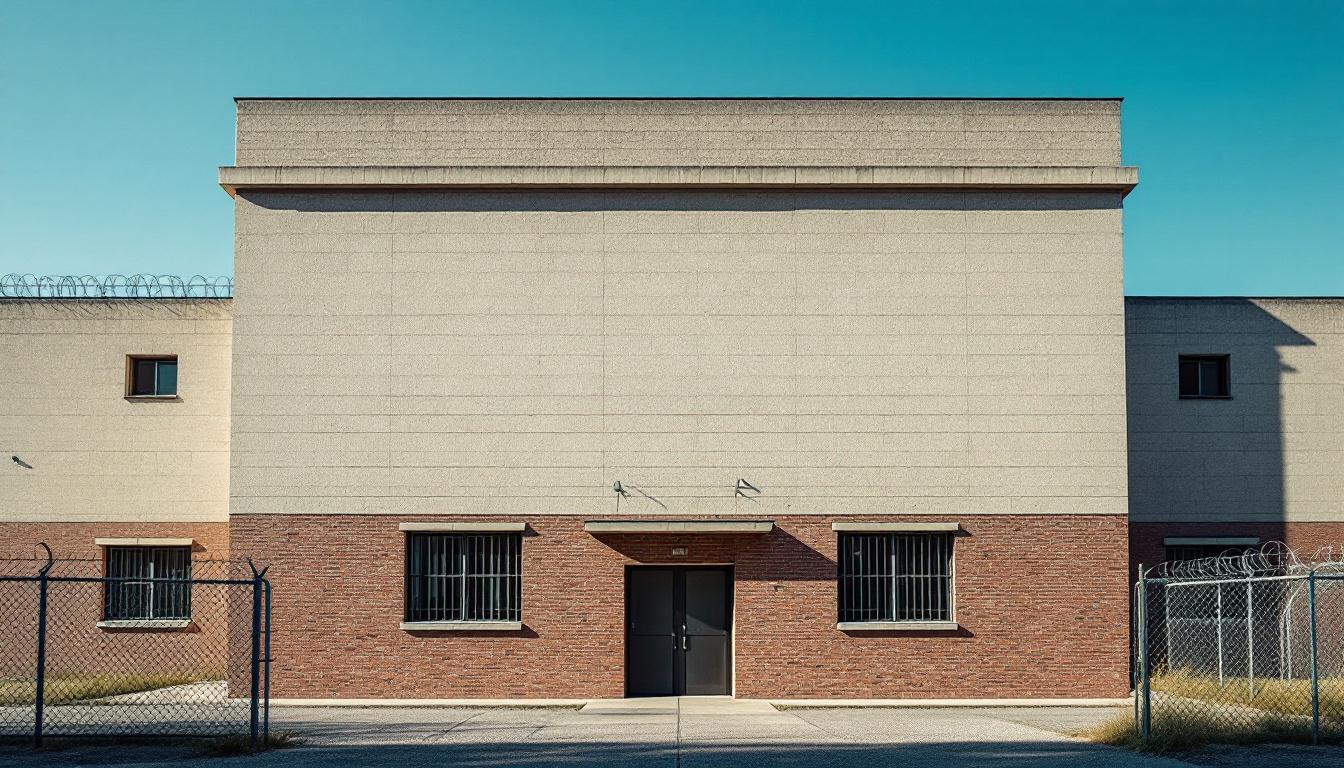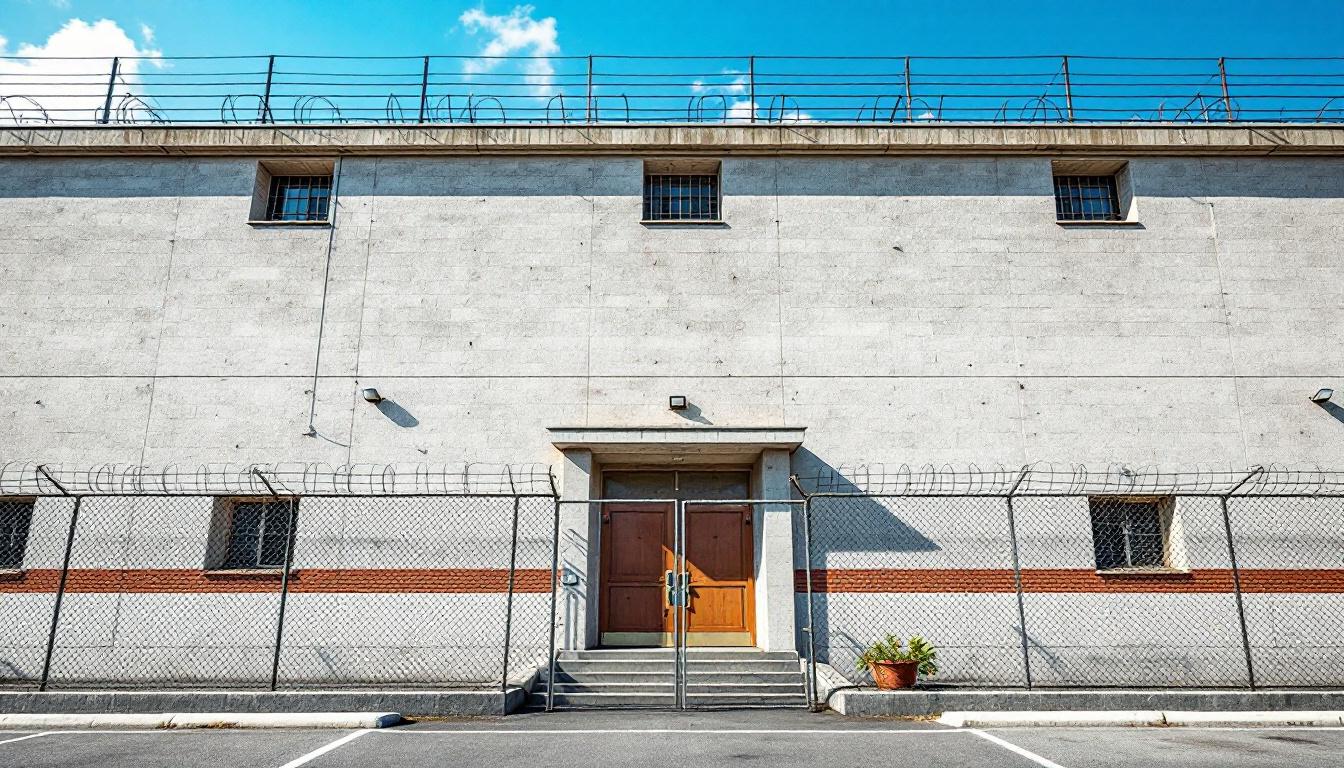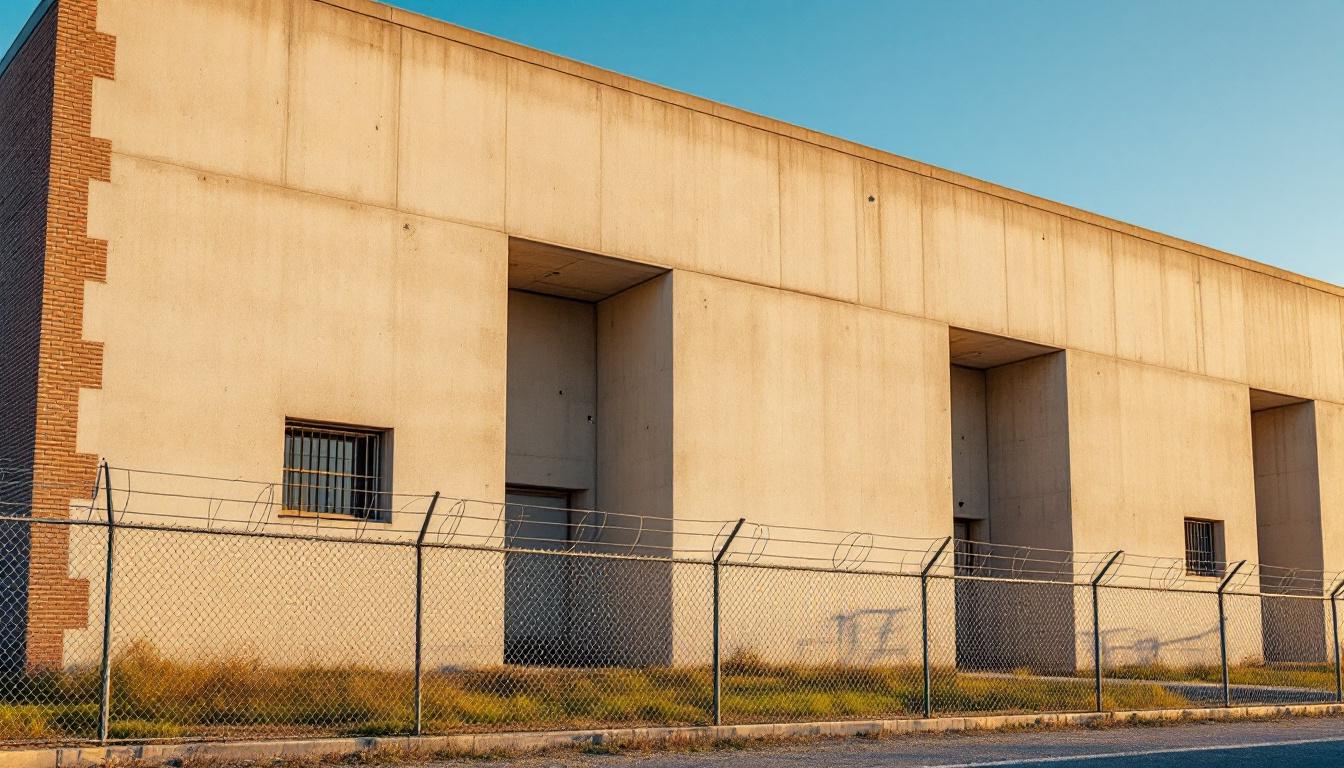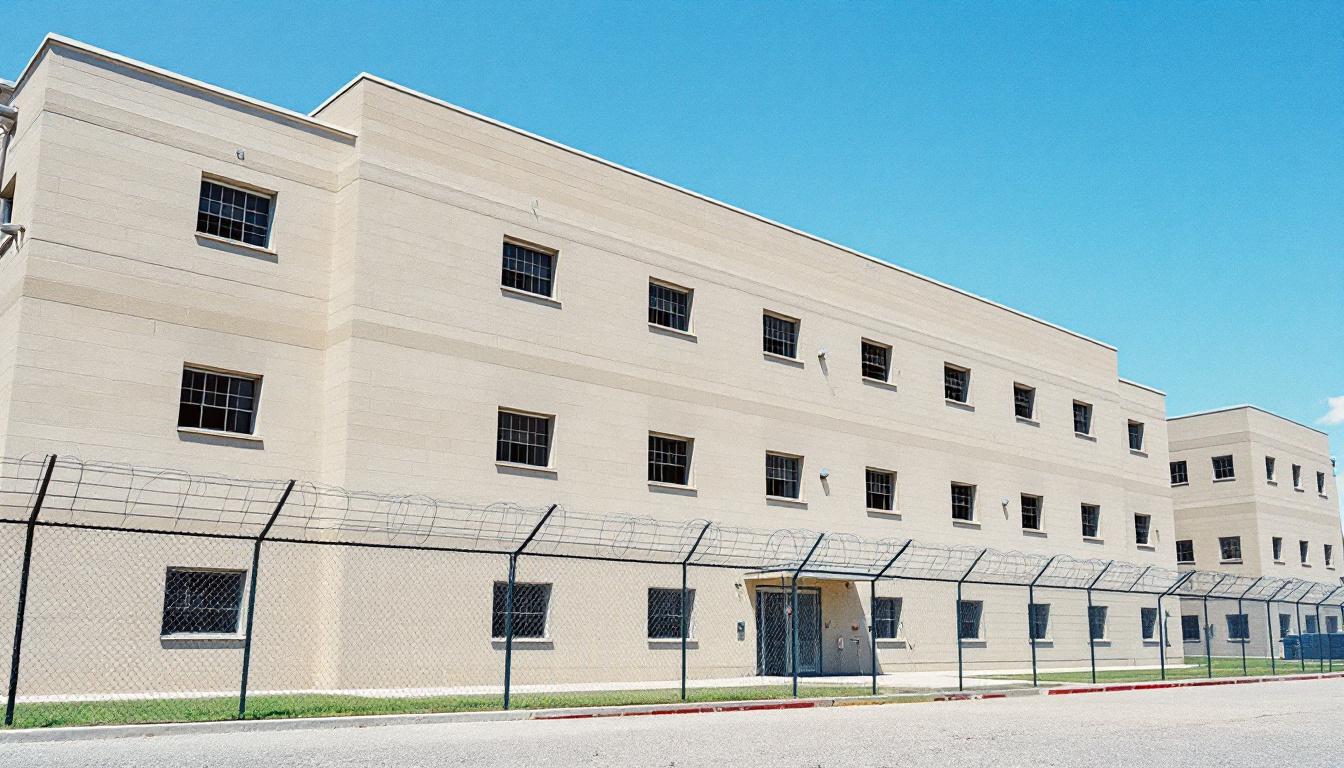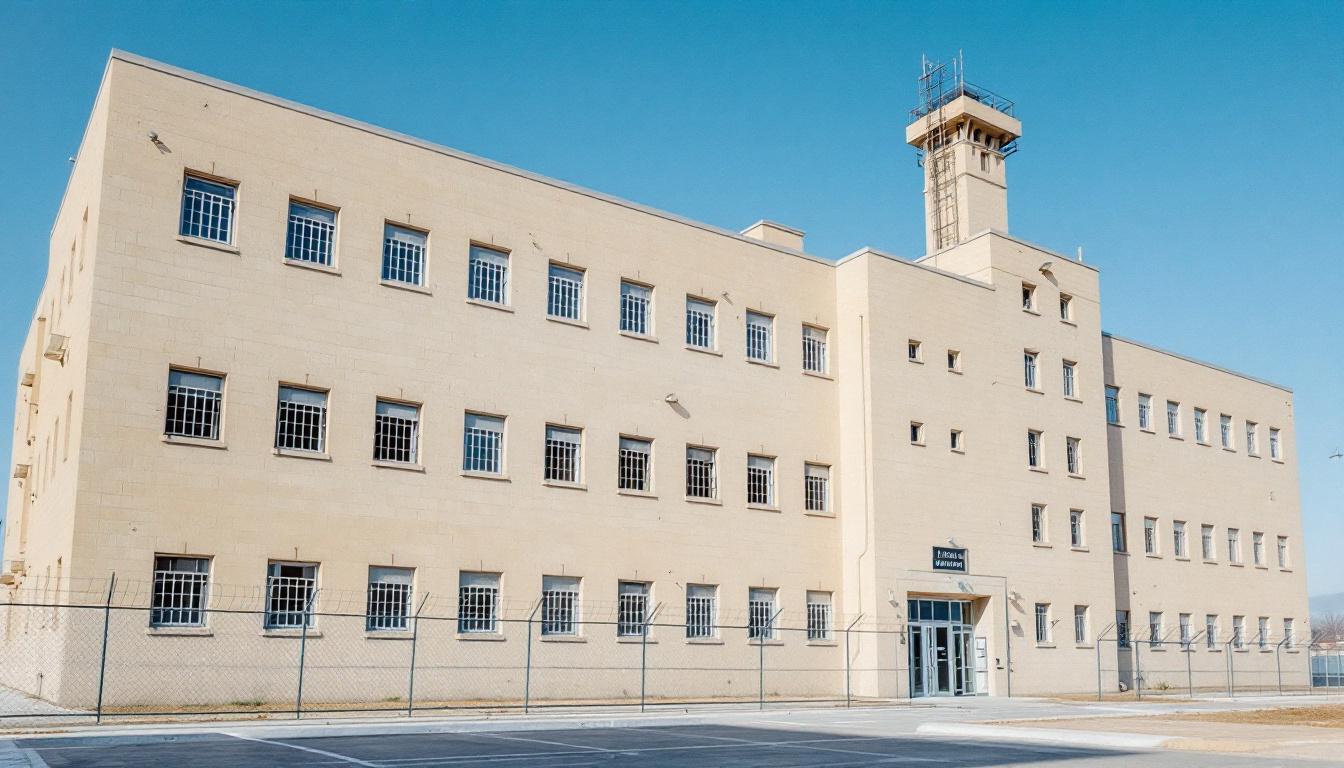
Quick Navigation
How to contact an inmate at Hidalgo County Sheriff's Jail
This comprehensive guide will walk you through how to connect with an inmate at Hidalgo County Sheriff's Jail. Follow the steps below to find an inmate and send letters and photos:
- Search for the inmate using our search tool below
- Create your account or log in to Penmate
- Write your message (up to 6,000 characters)
- Send instantly - inmates receive printed copies daily
Find an Inmate
Search for an inmate to start communicating today
Tip: You can search by first name, last name, or inmate ID number
To contact a person at Hidalgo County Sheriff's Jail start by searching for the person on the official facility website. Perform a search by following these steps:
- Step 1: Enter their first name and last name into the search form and click "Search"
- Step 2: Locate their inmate record
- Step 3: Write down their Inmate ID and any housing information provided
Important! Be sure to enter the person's full name. Nicknames should not be used.
How to Send Messages to Inmates

You can use your phone or computer to send emails, letters, and photos to an inmate. Messages are sent electronically to inmate tablets or kiosks at the facility. If you would like to send a message, start by searching for an inmate at Hidalgo County Sheriff's Jail.
Sending Photos and Postcards

A great way to send love and support to a loved one at Hidalgo County Sheriff's Jail is to send photos and postcards. It only takes a few minutes to send photos from your phone and it makes a huge difference. You can also mail postcards with words of support and inspiration, or design your own postcard for special moments like birthdays and holidays.
Important! Be sure not to send any explicit photos or they may not be approved by the facility. You can also use a photo printing app like Penmate to make sure your photos are printed at the correct size (4x6 or 3x5) and are mailed according to the rules and regulations of Hidalgo County Sheriff's Jail.
Frequently asked questions about Hidalgo County Sheriff's Jail
-
How long does it take to deliver a message?
If you're sending an email message your letter is usually delivered within 24-48 hours. For messages sent via mail you should expect delivery within 3-7 days. All messages will need be approved by Hidalgo County Sheriff's Jail.
-
How much does it cost to send a message to Hidalgo County Sheriff's Jail?
You can send a message free using your phone or mail a message via USPS for the price of a $0.60 stamp and envelope. You can also purchase credits or e-stamps from services starting at $1.99.
-
What services can I use to contact an inmate at Hidalgo County Sheriff's Jail?
Penmate
You can use Penmate to send letters and photos to an inmate from your phone. It's an easy way to stay in touch during your loved one's incarceration. Use the inmate locator to find an inmate's location and contact information, then you can send messages within a few minutes.
Securus messaging
Securus may be another option for communicating with an inmate at Hidalgo County Sheriff's Jail. You can create a friends and family account and purchase credits to send messages. All messages will be reviewed and must be approved by the facility.
JPay
Some county jails and state prisons may support sending messages with JPay. You must register an account with the system, find your loved one, and purchase stamps to send messages. For some locations you can also attach photos.
Smart Jail Mail
You may also check if Smart Jail Mail is available at Hidalgo County Sheriff's Jail. Smart Jail Mail is operated by Smart Communications and has contracted with some state and county jails. After purchasing credits, your messages and photos are sent to the facility, printed out, and then handed out to your loved one.
-
What is the mailing address of Hidalgo County Sheriff's Jail?
Mailing address:
Hidalgo County Sheriff's Jail
701 E El Cibolo Rd
Edinburg, TX 78541
Phone: (956) 381-7900Business hours:
- Monday: 8:00 AM – 10:00 PM
- Tuesday: 8:00 AM – 10:00 PM
- Wednesday: 8:00 AM – 10:00 PM
- Thursday: 8:00 AM – 10:00 PM
- Friday: 8:00 AM – 10:00 PM
- Saturday: 8:00 AM – 10:00 PM
- Sunday: 8:00 AM – 10:00 PM
-
What are the visiting hours at Hidalgo County Sheriff's Jail?
Visiting hours at Hidalgo County Sheriff's Jail vary by housing unit and security level. Generally, visits are scheduled on weekends and holidays, with some facilities offering weekday visits. Contact the facility directly at (956) 381-7900 or check their website for the current visiting schedule. Visits typically last 30-60 minutes and must be scheduled in advance.
-
What items are prohibited when sending mail to Hidalgo County Sheriff's Jail?
Prohibited items typically include: cash, personal checks, stamps, stickers, glitter, glue, tape, staples, paperclips, polaroid photos, musical or blank greeting cards, hardcover books, magazines with staples, and any items containing metal or electronics. Only send letters on plain white paper with blue or black ink. Photos must be printed on regular photo paper (no Polaroids). Always check with Hidalgo County Sheriff's Jail for their specific mail policies.
-
How do I send money to an inmate at Hidalgo County Sheriff's Jail?
You can send money to an inmate at Hidalgo County Sheriff's Jail through several methods: 1) Online using JPay, Access Corrections, or the facility's approved vendor, 2) Money orders mailed directly to the facility with the inmate's name and ID number, 3) Kiosks located in the facility lobby, or 4) Over the phone using a credit or debit card. Fees vary by method, typically ranging from $2.95 to $11.95 per transaction.
-
Can I schedule a video visit with an inmate at Hidalgo County Sheriff's Jail?
Many facilities now offer video visitation as an alternative to in-person visits. At Hidalgo County Sheriff's Jail, video visits may be available through services like Penmate, Securus Video Connect, GTL, or ICSolutions. Video visits typically cost $10-20 for 20-30 minutes and must be scheduled in advance. You'll need a computer or smartphone with a camera and reliable internet connection. Contact the facility for their specific video visitation policies and approved vendors.
-
What identification do I need to visit an inmate at Hidalgo County Sheriff's Jail?
All visitors must present valid government-issued photo identification such as a driver's license, state ID, passport, or military ID. Minors must be accompanied by a parent or legal guardian who can provide the minor's birth certificate. Some facilities require visitors to be on the inmate's approved visitation list, which may require a background check. Contact Hidalgo County Sheriff's Jail for specific ID requirements and visitor approval procedures.
-
How can I find out an inmate's release date?
To find an inmate's release date at Hidalgo County Sheriff's Jail, you can: 1) Use the online inmate search tool if available, 2) Call the facility's records department, 3) Contact the inmate's case manager or counselor, or 4) Have the inmate provide this information during a call or visit. For privacy reasons, some facilities only release this information to immediate family members.
Facility Overview
Contact Information
Hidalgo County Sheriff's Jail701 E El Cibolo Rd
Edinburg, TX 78541
Phone: (956) 381-7900
Official Website
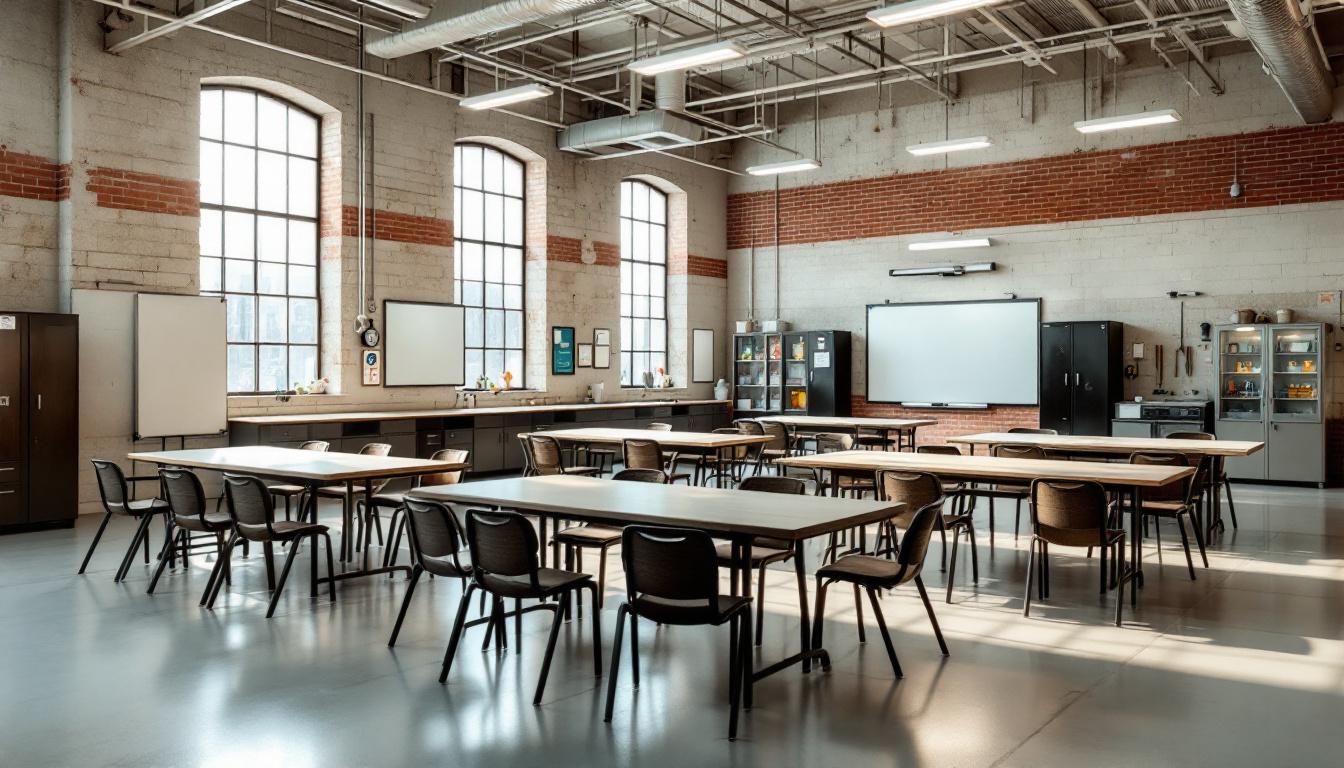
About Hidalgo County Sheriff's Jail
Comprehensive programming and support services form the foundation of operations at the Hidalgo County Adult Detention Facility, where individuals in custody may access educational opportunities, vocational training, and behavioral health resources designed to address underlying factors contributing to criminal behavior. Located in Edinburg, Texas, this detention center typically maintains a structured environment that balances secure custody requirements with rehabilitation-focused initiatives, often including substance abuse counseling, mental health services, and life skills development programs. The facility generally operates within Texas's broader correctional framework, serving as a crucial component in the regional justice system while emphasizing both public safety and individual transformation.
Within the South Texas correctional landscape, the Hidalgo County Adult Detention Facility often provides pre-trial detention services alongside sentenced individual housing, maintaining security protocols that may include classification systems, medical care, and visitor management procedures. The detention center typically offers religious services, library access, and recreational activities as part of its holistic approach to custody management. Staff members generally focus on creating an environment where individuals services extend beyond basic housing to include case management support, court coordination, and transition planning that may help prepare residents for successful community reintegration upon release, reflecting the facility's commitment to both immediate security needs and longer-term rehabilitation objectives.
Programs & Services
From basic life skills to specialized vocational training, the breadth of opportunities at Hidalgo County Adult Detention Facility reflects a commitment to individual development and successful community reintegration. The facility typically maintains a comprehensive approach that addresses multiple aspects of personal growth, recognizing that meaningful change often requires diverse pathways for learning and skill development. Individuals may participate in various structured activities designed to build both practical abilities and personal resilience.
Educational and vocational opportunities often include structured learning environments where individuals can develop marketable skills. Vocational training programs may offer hands-on experience in various trades, while specialized certification opportunities such as forklift operation provide individuals with credentials that support employment readiness. These skill-building initiatives typically focus on practical applications that align with regional employment needs and help participants prepare for successful workforce entry upon release.
Furthermore, the facility often provides comprehensive support services that address personal wellness and community connection. Work programs may offer individuals the opportunity to develop responsibility and routine while contributing to facility operations. Faith-based initiatives typically provide spiritual support and community connection for those who choose to participate. Additionally, wellness programs may focus on physical health, mental well-being, and stress management techniques that support overall personal development and prepare individuals for successful transitions back to their communities.
Daily Life & Visitation
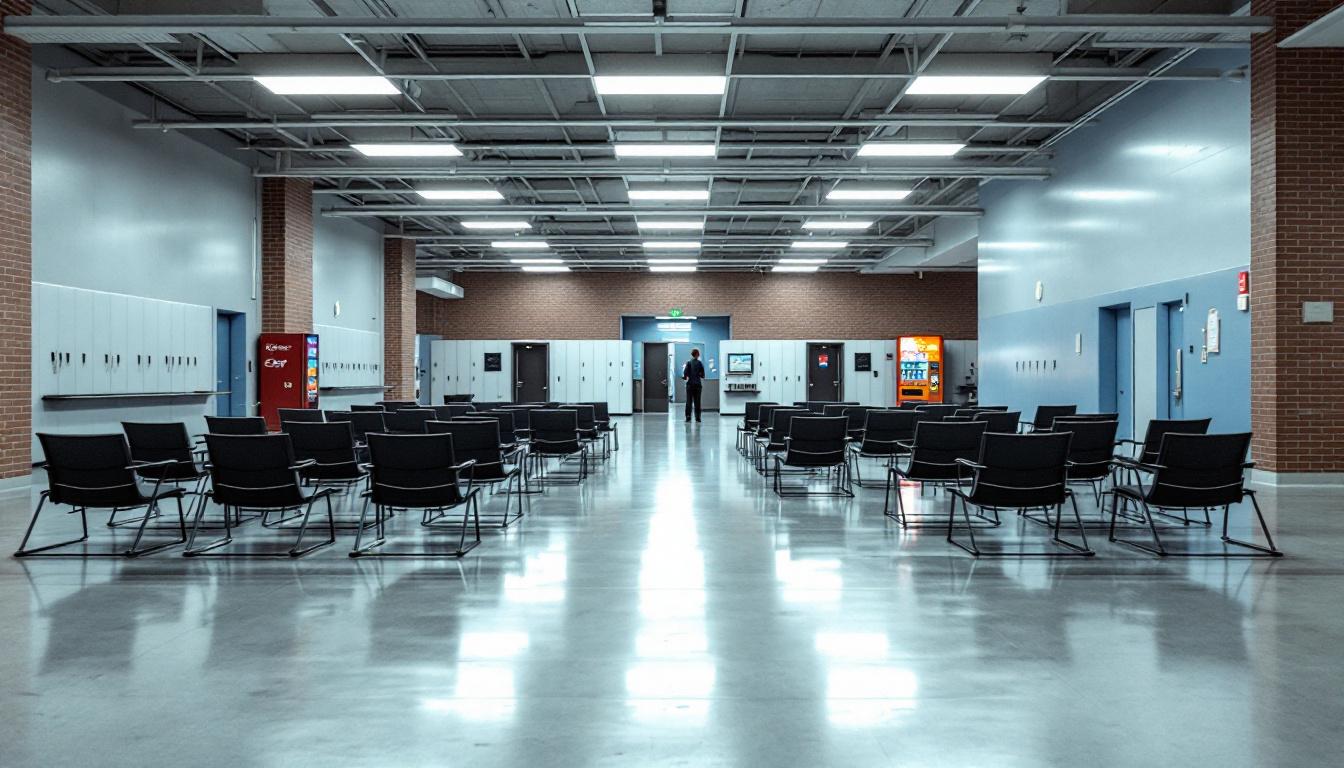
The sound of breakfast trays being distributed typically marks the beginning of each day for individuals housed within the facility. At present, the daily routine actively revolves around structured meal times, scheduled programming, and supervised activities that provide order to institutional life. Count times occur regularly throughout the day, requiring individuals to be present and accounted for in their assigned housing areas.
Living accommodations generally consist of dormitory-style housing units or individual cells, depending on classification levels and available space. Individuals typically share living areas with others and may have access to basic amenities such as television viewing areas and reading materials. Personal property allowances usually include essential items like clothing, hygiene products, and limited personal effects, while commissary services often provide opportunities to purchase additional comfort items and snacks.
Furthermore, the facility may offer various recreational activities and exercise opportunities to help individuals maintain physical and mental well-being during their stay. Work assignments within the facility often include kitchen duties, cleaning responsibilities, and maintenance tasks that provide structure and potential skill development. Although visitation schedules and communication options vary, individuals typically have opportunities to maintain contact with family members through scheduled visits, phone calls, and correspondence, which can provide crucial emotional support during their time at the facility.
Ready to Connect?
Start communicating with your loved one today
Search for an Inmate
